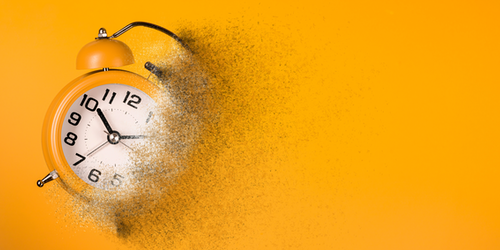
The consequences for holding these misogynistic or bigoted views are straightforward. Outside the echo chambers in which this hate can be spewed, these people for the most part are held accountable and shunned by society for their views. If there is any part of ‘anti-racism’ that I can get on board with, it is that this racism should be denounced when it is encountered. But we don’t have to go on a witch hunt in order to achieve this, and the sought effect will (and already does) organically happen by the ostracisation of these people to the fringes of society. In this respect, the powerful disincentive of social exclusion is already at work to temper the proliferation of these toxic forms of thinking.
In response to this would be the claim by those on the woke left that this racism is not a bug that exists on the fringes but a feature of the greater society as a whole. I don’t believe the evidence exists to support this claim, and instances of racism among individuals can’t be expanded out to imbue the whole of society with that quality. To do so not only distorts reality, but it creates an unnecessarily adversarial relationship between those who label themselves as ‘systemically oppressed’ and those who aren’t racist but are labelled as ‘privileged oppressors’ by dint of nothing else than their skin colour. Being itself a form of racism in another guise, we are shown how legitimate social principles such as ‘equity’ and ‘social justice’ are bastardised to serve an ideological agenda in which reconciliation and the movement towards a post-racial future are not primary considerations.
As I have written about previously, it is this bastardisation of moral virtue and the rank hypocrisy which flows from that which animates my scorn for the far left. If we as a society really do care about equity and injustice, it should be focused on those most in need of opportunities or remedial restoration regardless of the superficial identity categories that we place so much stock in. Being preoccupied about one’s race, sex, gender identity (or the intersectional combination of these) only derails this pursuit because it disregards the nuance and complexity that exists in the real world. A good number of minorities enjoy wealth and privilege, many women occupy positions of power and are compensated fairly for their efforts, and the protections of the law apply equally to members of the LGBTQIA+ community in the Western world.
Presented with this clear evidence of progress being made relative to the past, why then are we convinced that things are worse now than they have ever been? Because doing so serves the narrative that we have constructed for ourselves about the place we occupy in the world. This place, unfortunately, too often is defined through the lens of victimhood that has permeated the culture to become valorised as a marker of status or entitlement. So instead of defining ourselves by the fruits of our character and the virtues that we bring forward into the world through our contribution, we default to defining ourselves by our opposition to those ‘in power’ who we perceive have oppressed or dispossessed us of what is rightfully ours. The irony of defining ourselves in this way is that we only victimise ourselves further. Becoming a slave to this disempowering narrative, in whatever form it takes for us, does nothing to transform us into the type of person who can effect meaningful change in the world. Leadership, in this respect, requires us to sacrifice the ideologies at the extremes for a renewal of the connection and commitment to the human heart that unites and offers hope for a more harmonious path of prosperity for humanity.
It is also the case that the loudest minority at these extremes distort our perception of how far these divisions lie. Keeping this in mind can temper our outrage towards those who we don’t agree with. The barrier that is preserved by this online polarisation is that it doesn’t allow us to meet and sit down with other people who think differently than we do. Behind the avatars are often rational and well-intentioned people who are amenable to argument if it is couched in the right way with a shared end in mind. Regardless of what our unique circumstances or understandings are, we clearly have common interests that extend from the present into the future where succeeding generations will have to face problems that should be different from those that we have been tasked with the responsibility for resolving. Slugging it out like two boxers in a ring is no strategy for evolution, and rather than take our licks and inflict corresponding punishment, we should step back to see that ultimately our opponent is not the person in front of us, but the polarising ideological constructions inside us that have us conflate and confuse who we are with what we oppose.



